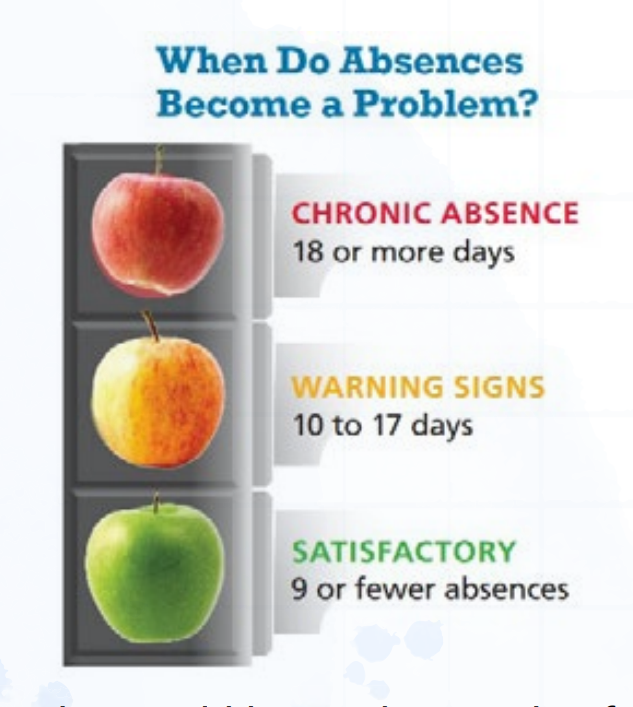By this definition the student of average ability who has consistently given their best effort and achieves a C grade has succeeded, whereas the highly able student who has worked inconsistently and gained a C grade has not.
At the start of each academic year I talk to students about this way of understanding what academic success means. Then I share with them what I believe are the three simple but fundamentally important elements that contribute to academic success. These are:
- Attending school every day
- Working hard every period (every day, in every subject)
- Doing periodic review every night
Obviously there are legitimate occasions when a student cannot attend school; when they are genuinely ill or there is a family bereavement are just two examples. However, on a daily basis there are students that miss school unnecessarily – they feign illness to have a day off, they attend appointments that could be made outside of school hours, they take long weekends or extended holidays, leaving before official school holidays start or returning late after school has resumed, and sometimes they simply truant.
There is abundant evidence to show that there is a strong correlation between attendance rates and academic achievement. A 2016 report from the UK Department of Education concluded that the higher a student’s overall absence rate, the lower their likely level of attainment will be. For example, students with no absences in Years 10 and 11 are nearly 3 times more likely to achieve highly in IGCSE ( 5+ grades of A* - C ) than students who miss 15% of their lessons.
Research published by the Australian Council for Educational Research (Stephen R. Zubrick The University of Western Australia), not only confirms that academic outcomes are enhanced by maximising attendance in school, but highlights the fact that ‘every day counts’. This is particularly true in senior secondary where there is always pressure of time to cover demanding IGCSE and IB syllabuses. Moreover, the effects of non-attendance accumulate over time. The report states that ‘Parents need to understand that when their child misses school it can have an ongoing impact on their learning’. The type of absence is also significant. Unauthorised absences – for example truancy or unapproved absences for family holidays and/or convenience – have stronger negative effects on academic achievement than authorised absences (i.e. unavoidable, legitimate absences).
Finally, the ACER report noted that patterns of attendance are established very early on, from the beginning of primary school. Students who get into the habit of regularly taking unnecessary absences tend to continue to do so throughout their school career. Once established, this pattern of behaviour can continue into adulthood and the work place, where they have negative effects on employability and advancement. For instance, formal reference checks routinely ask previous employers to report on the absence rate of job applicants.
There is no question that we are living through unprecedented times with the repercussions of the Coronavirus that have made attendance to school difficult at times. However, there is also no question that one of the key things that you can do as parents, in order to maximise your child’s chances of achieving academic success, is to ensure that they attend school as regularly as possible and avoid any unnecessary absences.
























